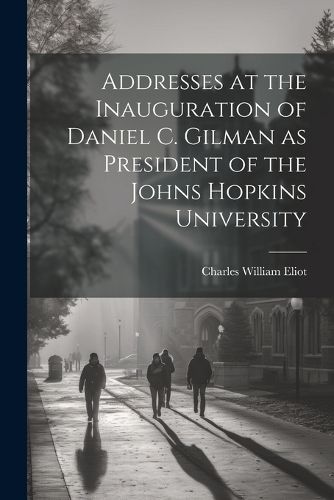Readings Newsletter
Become a Readings Member to make your shopping experience even easier.
Sign in or sign up for free!
You’re not far away from qualifying for FREE standard shipping within Australia
You’ve qualified for FREE standard shipping within Australia
The cart is loading…






This collection of speeches delivered at the inauguration of Daniel C. Gilman as the first president of the Johns Hopkins University in 1876 celebrates the birth of an intellectual powerhouse and recounts the hope and promise of a new era of education. Eliot's oratorical skills and keen insights make this book a must-read for anyone interested in the history of higher education in America.
This work has been selected by scholars as being culturally important, and is part of the knowledge base of civilization as we know it.
This work is in the "public domain in the United States of America, and possibly other nations. Within the United States, you may freely copy and distribute this work, as no entity (individual or corporate) has a copyright on the body of the work.
Scholars believe, and we concur, that this work is important enough to be preserved, reproduced, and made generally available to the public. We appreciate your support of the preservation process, and thank you for being an important part of keeping this knowledge alive and relevant.
$9.00 standard shipping within Australia
FREE standard shipping within Australia for orders over $100.00
Express & International shipping calculated at checkout
This collection of speeches delivered at the inauguration of Daniel C. Gilman as the first president of the Johns Hopkins University in 1876 celebrates the birth of an intellectual powerhouse and recounts the hope and promise of a new era of education. Eliot's oratorical skills and keen insights make this book a must-read for anyone interested in the history of higher education in America.
This work has been selected by scholars as being culturally important, and is part of the knowledge base of civilization as we know it.
This work is in the "public domain in the United States of America, and possibly other nations. Within the United States, you may freely copy and distribute this work, as no entity (individual or corporate) has a copyright on the body of the work.
Scholars believe, and we concur, that this work is important enough to be preserved, reproduced, and made generally available to the public. We appreciate your support of the preservation process, and thank you for being an important part of keeping this knowledge alive and relevant.